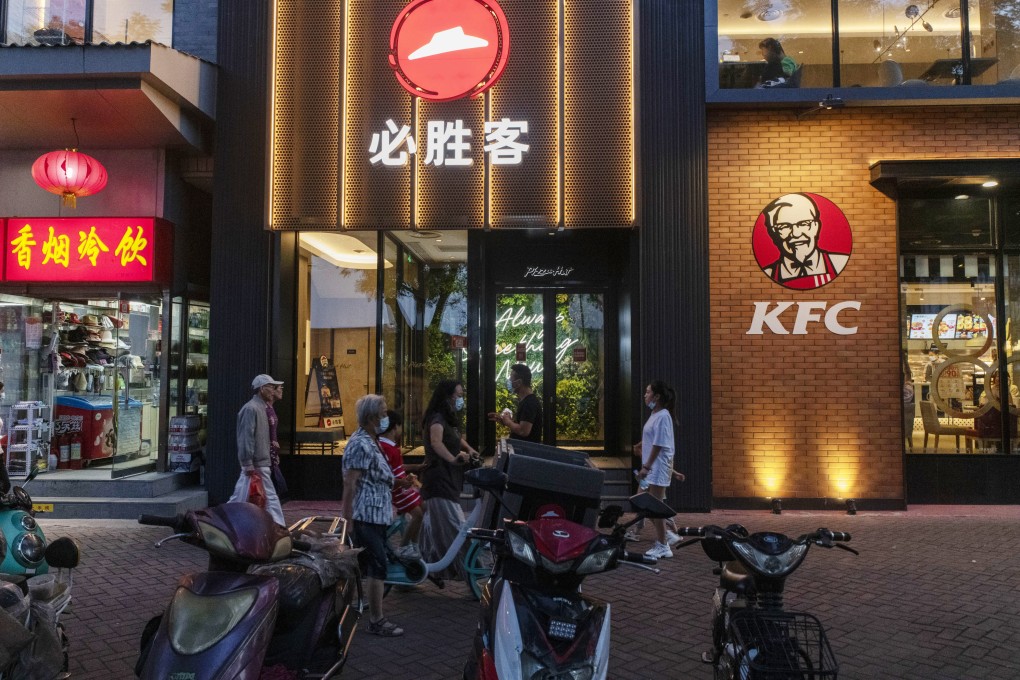Advertisement
KFC, Pizza Hut operator Yum China reports 54 per cent profit drop after Covid-19 curbs kept diners at bay
- The fast-food giant said its earnings in the three months ended June 30 came to US$83 million, down 54 per cent from the same period last year
- ‘We have been battling the pandemic for the past two and a half years. The second quarter was the most challenging to date,’ says CEO
Reading Time:2 minutes
Why you can trust SCMP
1

Yum China Holdings, the owner of the KFC and Pizza Hut restaurant chains in China, took a beating from the mainland’s stringent Covid-19 curbs as its net profit dropped by more than half from a year earlier.
The fast-food giant said on Friday that its earnings in the three months ended June 30 came to US$83 million, down 54 per cent from the same period last year.
Its performance still beat the company’s forecast in May when it warned investors of a potential net loss amid a flare-up in the pandemic which prompted Shanghai to impose a two-month citywide lockdown.
Advertisement
From April to May, 2,500 of Yum China’s restaurants, about a fifth of the total, were either temporarily closed or barred from serving dine-in customers because of the zero-Covid strategy.
“We have been battling the pandemic for the past two and a half years. The second quarter was the most challenging to date,” said the company’s chief executive, Joey Wat.
Advertisement
Advertisement
Select Voice
Select Speed
1.00x
